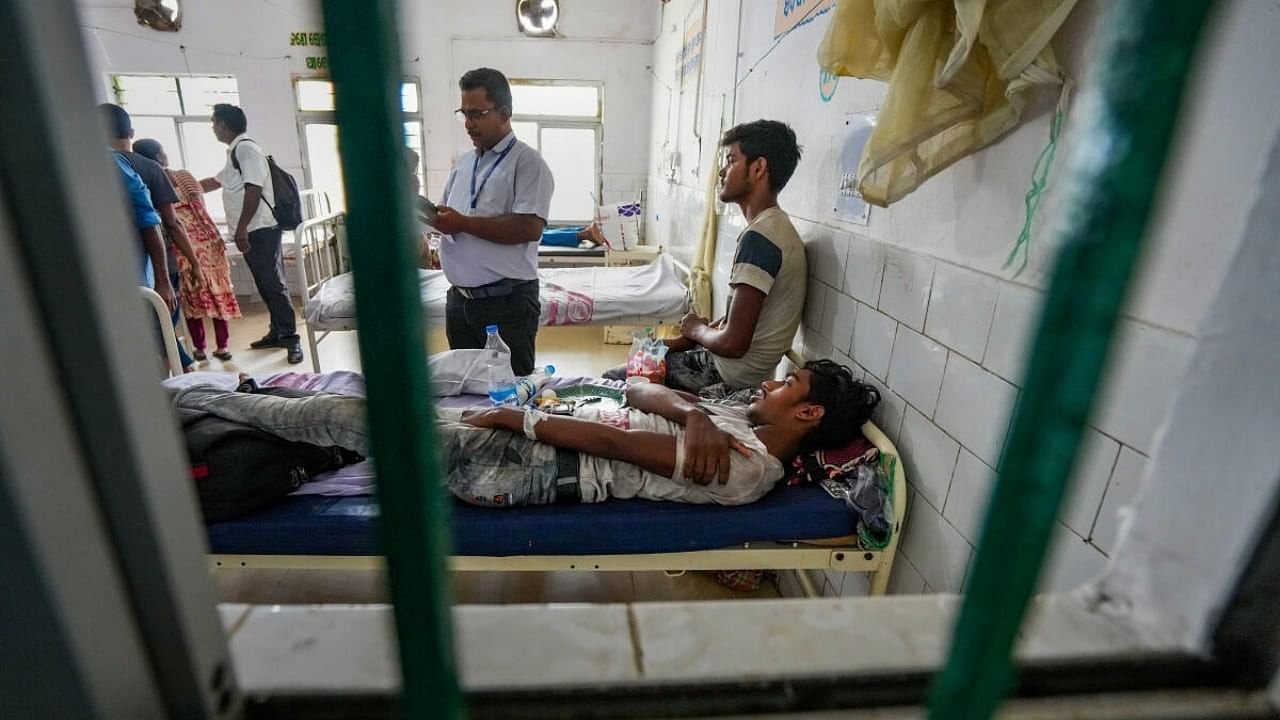
Representative image of a hospital.
Credit: PTI Photo
The Insurance Regulatory and Development Authority of India (IRDAI) has taken a significant step towards enhancing healthcare access for all age groups by removing the age cap on purchasing health insurance policies starting April 1, 2024. This move marks a pivotal moment in the insurance sector, making healthcare coverage more inclusive and accessible to individuals of all ages. In a bid to cater to the diverse needs of different age groups, insurers are now mandated to offer customized health insurance products, with a special focus on providing tailored policies for seniors.
Recognizing the unique healthcare requirements of senior citizens, the IRDAI has directed insurers to create demographic-specific policies for this age group and handle their claims separately. In a commendable move towards promoting inclusivity and ensuring financial security for seniors, insurers are now prohibited from denying policies based on severe medical conditions. Furthermore, the regulatory authority has reduced the waiting period for pre-existing conditions from 48 to 36 months, facilitating quicker access to comprehensive health coverage for individuals with existing health concerns. In a shift towards a more beneficial approach, insurers are now required to provide benefit-based policies instead of indemnity-based ones, aligning insurance offerings with the evolving needs of policyholders.
The IRDAI’s proactive stance towards reforming the health insurance landscape in India is further evidenced by the establishment of a Health Insurance Consultative Committee comprising senior insurance and healthcare professionals. This committee, of which the writer is a part, was formed over a year ago and has been instrumental in formulating a series of other recommendations aimed at enhancing the overall healthcare experience for senior citizens. These recommendations encompass a range of crucial initiatives, from designing simplified and affordable insurance products tailored to the specific requirements of the elderly demographic to incorporating innovative features such as coverage for homecare treatment and outpatient department (OPD) services and the removal or reduction of GST for these policies.
By implementing these recommendations, the government and IRDAI can significantly enhance the quality of healthcare services available to senior citizens. The introduction of wellness and preventive care benefits can empower seniors to prioritize their health and well-being, leading to improved health outcomes and potentially reducing the need for costly medical interventions. Promoting insurance coverage for recognised alternative forms of medicine such as Ayurveda, Yoga and Naturopathy, Unani, Siddha, and Homeopathy (AYUSH) can offer seniors additional avenues for managing their health conditions and enhancing their overall quality of life.
In addition, leveraging digitisation to control healthcare costs can drive efficiencies in service delivery and lower financial burdens for senior citizens. Another suggestion to the government is to include seniors in the Pradhan Mantri Jan Arogya Yojana (PMJAY) programme to ensure that they have access to essential healthcare services and financial protection, especially during medical emergencies. This underscores the government’s commitment to safeguarding the health and well-being of senior citizens.
As the older adult population in the country commends the IRDAI and the government for their progressive initiatives in the healthcare sector, it is imperative that the remaining recommendations put forth by the Health Insurance Consultative Committee are swiftly implemented. The continued collaboration between regulatory authorities, insurers, and healthcare professionals is essential to ensuring that senior citizens receive comprehensive and affordable healthcare coverage that meets their evolving needs. By prioritising the welfare of our elderly population and embracing innovative solutions, we can create a more inclusive and sustainable healthcare ecosystem that benefits all members
of society.
(The writer is patron and founder, AHPI)